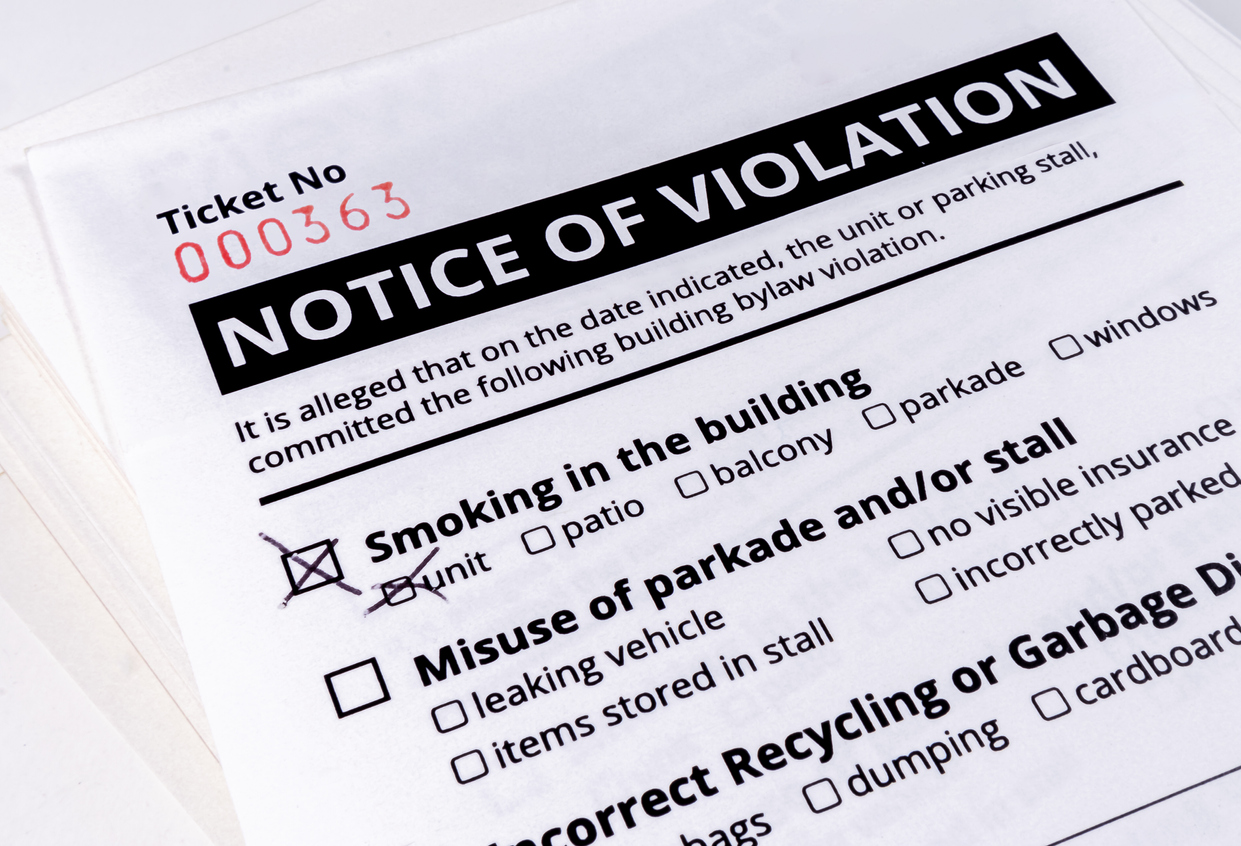The decriminalization of adult use and sale of cannabis will have a significant impact on Minnesotans, including those who live in homeowners associations. Part I of this article provided a broad overview of what the decriminalization means for associations. Part II focuses on nuisance claims and the potential consequences for associations responding to such claims.
Nuisance Claims Regarding Use of Cannabis
Section 74 of the new cannabis law (to be codified as Minn. Stat. Section 342.82) specifically defines use of cannabis as a nuisance:
Any use of adult-use cannabis flower which is injurious to health, indecent or offensive to the senses, or an obstruction to the free use of property so as to interfere with the comfortable enjoyment of life or property is a nuisance.
More important, the law includes penalties for an association’s failure to enforce any rule or provision in the declaration related to use of cannabis in the community:
- A person who is injuriously affected or whose personal enjoyment is lessened by a nuisance under subdivision 1 [above] may bring an action for injunctive relief and the greater of the person’s actual damages or a civil penalty of $250.
- If a landlord, as defined in section 504B.001, subdivision 7, or an association, as defined in section 515B.1-103, clause (4), fails to enforce the terms of a lease, governing document, or policy related to the use of adult-use cannabis flower on the premises or property, a person who is injuriously affected or whose personal enjoyment is lessened by a nuisance under subdivision 1 as a result of the failure to enforce the terms may bring an action against the landlord or association seeking injunctive relief and the greater of the person’s actual damages or a civil penalty of $500.
Because the statute will now define cannabis use as a nuisance, any provision in the governing documents prohibiting nuisances will now automatically include use of cannabis – even if the association has not adopted any specific rules or declaration terms regulating or prohibiting smoking or other use of cannabis.
How does the change affect how associations do business?
Most associations’ governing documents already include nuisance provisions, under which creating a nuisance is a violation. In those communities with authority to fine, associations may fine owners creating a nuisance. All associations may pursue a court order requiring the violating owner to comply with the governing documents (e.g., stop the activity that is causing a nuisance). Such an order is referred to “injunctive relief.”
Although use of cannabis that is injurious to the health of others or interferes with their comfortable enjoyment of life would already qualify as a nuisance under existing law, the new law specifically identifies adult use of cannabis as a nuisance. As a result, those claiming a nuisance creating by use of cannabis would not have to prove that it is a nuisance; the law says it is, period.
The new law takes things one step further, providing penalties for the person creating the nuisance and for the association if it fails to enforce any provision of governing documents (e.g., the general nuisance provision found in most associations’ declaration or rules addressing nuisances). As noted above, those penalties for an association’s failure to act are the greater of the person’s actual damages or a civil penalty of $500.00. That is, $500.00 would be the minimum penalty. The cost could be far more significant than just $500.00.
The conundrum facing an association is that enforcement actions (including levying of fines) are confidential. Therefore, if a resident makes a complaint that a neighbor’s use of cannabis is a nuisance, that owner would never know if the association took any action on that complaint. If nuisance continued, the complaining resident may assume nothing is being done and seek damages/penalties against the association. The trouble is, the association may well have taken action—it just can’t tell the complaining resident that it has done anything.
In order to recover such damages/penalties, the complaining owner would have to sue the association for its failure to enforce the governing documents. The costs related to litigation may initially be an obstacle for owners to pursue claims, but it is possible that, if the claims are successful, the court may order the association to pay the owner’s attorneys’ fees and costs.
While the costs of defending such claims would likely be covered by an association’s directors’ and officers’ liability insurance, any litigation takes a toll on a board and the community as a whole.
If the violating owner failed to comply with the association’s demand to comply with the governing documents, the association could take the violating owner to court to force the owner to stop the nuisance. However, litigation is a long and expensive process. Cases initiated by the association are not covered by directors’ and officers’ liability insurance, so all costs of litigation are funded by the association. If associations are effectively forced to seek injunctive relief, it will have a significant impact on associations’ finances.
Regardless of who starts litigation involving the association, the lawsuit must be disclosed on a Resale Disclosure Certificate provided to a prospective buyer of a unit in the community (and to lenders). Such litigation could have a chilling effect on home sales in the community—and the value of those homes.
What if the cannabis use is for medical reasons?
If an owner makes a nuisance complaint about a neighbor’s cannabis use, and the neighbor’s use is for medicinal purposes, the cannabis user may be legally entitled to the medical use of cannabis under the federal Fair Housing Act. Where state law conflicts with federal law, federal law takes precedence. Therefore, if a person uses cannabis for medicinal reasons and has requested and been granted a reasonable accommodation by the association to use cannabis, the new Minnesota law will not change the user’s right to continue to use cannabis for medicinal purposes.
However, the Minnesota law does not specifically address whether a resident complaining that such use is a nuisance would still be entitled to seek damages and penalties from the association for its “failure” to enforce the governing documents that would otherwise prohibit use of cannabis. Indeed, under these circumstances, the association would not be failing to enforce the governing documents against the cannabis user; it is prohibited under federal law from doing so. Complaining owners may not understand that distinction, and may therefore still attempt to seek damages/penalties. This may lead to disputes between complaining owners and associations, and may even result in litigation. Even though the association would likely prevail against such claims, the association must nonetheless deal with the claims, forcing the association to devote time, energy and other resources to defending the claims—a considerable cost to the association and its members.
When does this change take effect?
This law takes effect July 1, 2023, and applies to actions arising on or after that date.
Up Next: Prohibitions on cannabis use in multi-family buildings are coming – but don’t hold your breath.
If you have questions about how the laws regarding adult use and sale of cannabis in Minnesota may impact your association, please contact attorney Nancy Polomis at 952-746-2105 or [email protected].


